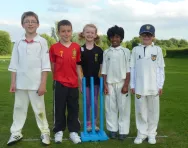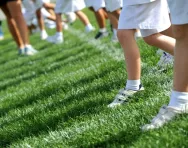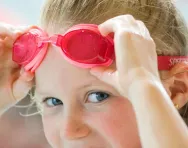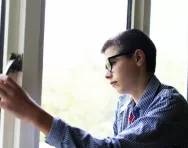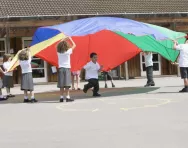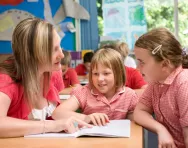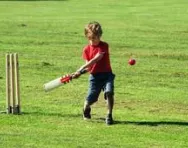Important update from TheSchoolRun
For the past 13 years, TheSchoolRun has been run by a small team of mums working from home, dedicated to providing quality educational resources to primary school parents. Unfortunately, rising supplier costs and falling revenue have made it impossible for us to continue operating, and we’ve had to make the difficult decision to close. The good news: We’ve arranged for another educational provider to take over many of our resources. These will be hosted on a new portal, where the content will be updated and expanded to support your child’s learning.
What this means for subscribers:
- Your subscription is still active, and for now, you can keep using the website as normal — just log in with your usual details to access all our articles and resources*.
- In a few months, all resources will move to the new portal. You’ll continue to have access there until your subscription ends. We’ll send you full details nearer the time.
- As a thank you for your support, we’ll also be sending you 16 primary school eBooks (worth £108.84) to download and keep.
A few changes to be aware of:
- The Learning Journey weekly email has ended, but your child’s plan will still be updated on your dashboard each Monday. Just log in to see the recommended worksheets.
- The 11+ weekly emails have now ended. We sent you all the remaining emails in the series at the end of March — please check your inbox (and spam folder) if you haven’t seen them. You can also follow the full programme here: 11+ Learning Journey.
If you have any questions, please contact us at [email protected]. Thank you for being part of our journey it’s been a privilege to support your family’s learning.
*If you need to reset your password, it will still work as usual. Please check your spam folder if the reset email doesn’t appear in your inbox.
Team mates not required
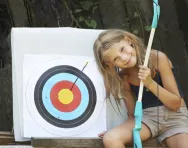
Primary-age PE is about building the ABCs of fitness – agility, balance, coordination and speed. These will all be introduced in school, though many children really develop their physical literacy in extra-curricular clubs.
If kicking, hitting or chasing a ball around doesn’t appeal, here are five individual activities that will still develop a wide range of fantastic physical skills. What’s more, each has that all-important cool quotient!
Fencing and archery have also created special primary-school programmes, so why not ask the head teacher about introducing them into your school?

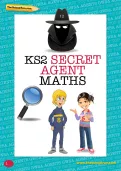
Claim four puzzle packs!
- Word Puzzle Packs
- Numeracy Puzzle Packs
- Challenging and exciting | Boost key skills
Fencing for primary-school children
En garde! Fencing is a unique combination of the athletic and aesthetic. It’s not only the white clothing, the mask and the blade itself that appeal; the language and history of the sport are endlessly fascinating. A good fencer will develop skill, speed and cunning, with boys and girls able to learn together in safety from the age of five.
British Fencing’s ‘Core Coach’ course trains teachers and community group leaders to introduce fencing to their school or group; you can start by using plastic or foam equipment. Find a fencing club near you on the British Fencing website.
Climbing for primary-school children
This is a sport where it definitely pays to be a hanger-on. Climbing is a great way to build confidence, trust and communication – not to mention agility, balance and strength. Most indoor centres run taster sessions, small-group and family courses for kids aged five-plus. Qualified instructors keep things completely safe and ensure everyone only climbs as high as they feel comfortable. It’s a great birthday party activity, too! Locate your local climbing wall on the British Mountaineering Council's website.
Archery for primary-school children
Archery is a sport you may well have tried at a community event or country fair. You probably enjoyed the thrill of drawing back the bowstring and hearing a satisfying thwack as your arrow landed somewhere near the bullseye – but never thought about taking it up as a hobby. The beauty of archery is that kids can learn alongside parents and indeed grandparents at a club or sports centre. Self-discipline, coordination and the ability to concentrate like crazy are just some of the benefits. There’s an archery club finder on the Archery GB website.
Ice skating for primary-school children
The Sochi 2014 Winter Olympics showcased a wide range of exciting ice sports, with one common link between all the athletes – an ability to skate. A casual trip to a rink is another popular party outing, but it’s far better to learn properly through the National Ice Skating Association’s Learn to Skate programme. This has eight graduated stages and is available at centres around the UK. Your kids will probably turn up for the first session with legs like trembling twigs but will be gliding gracefully over the ice in just a few weeks.
Life-saving for primary-school children
Remember ‘Baywatch’? Everyone admires the cool dudes who keep us safe on the beach. Many will have first developed their skills on a Royal Life Saving Society (RLSS) course – and turned an interest into a worthwhile summer job. The RLSS runs a Rookie Lifeguard programme for children aged 8-12, starting at a level that’s suitable for those who have just learned to swim 25 metres. There’s a host of awards to collect, plenty of places to learn and lots of opportunities to develop safety, survival, rescue and sports skills. (Life-saving is just one of the essential life skills all primary-school children can (and should!) learn.)
